41st Meeting of the Open-Ended Working Group of the Parties to the Montreal Protocol on Substances that Deplete the Ozone Layer (OEWG 41)
1-5 July 2019 | UN Conference Centre (UNCC), Bangkok, Thailand
Summary Highlights
The forty-first meeting of the Open-ended Working Group of the Parties to the Montreal Protocol on Substances that Deplete the Ozone Layer (OEWG 41) was faced with a lengthy agenda as it laid the groundwork for decisions to be taken at the thirty-first Meeting of the Parties (MOP 31) to be held in November 2019 in Rome, Italy.
Agenda items that were discussed and kept open for MOP 31’s further consideration include, among others:
- unexpected emissions of trichlorofluoromethane (CFC-11);
- terms of reference (ToR) for the study on the 2021-2023 replenishment of the Multilateral Fund for the Implementation of the Montreal Protocol;
- review of the ToR, composition, balance, fields of expertise and workload of the Technology and Economic Assessment Panel; and
- ToR for the 2022 Quadrennial Assessment.
Agenda items whose discussions were concluded at OEWG 41 and noted in the meeting report include:
- risk of non-compliance with hydrochlorofluorocarbon (HCFC) production and consumption reduction targets by the Democratic People’s Republic of Korea; and
- safety standards.
Over 450 participants from governments, UN agencies, intergovernmental and non-governmental organizations, academia, and industry attended OEWG 41, which convened in Bangkok, Thailand from 1-5 July 2019.
Highlights for Friday, 5 July 2019
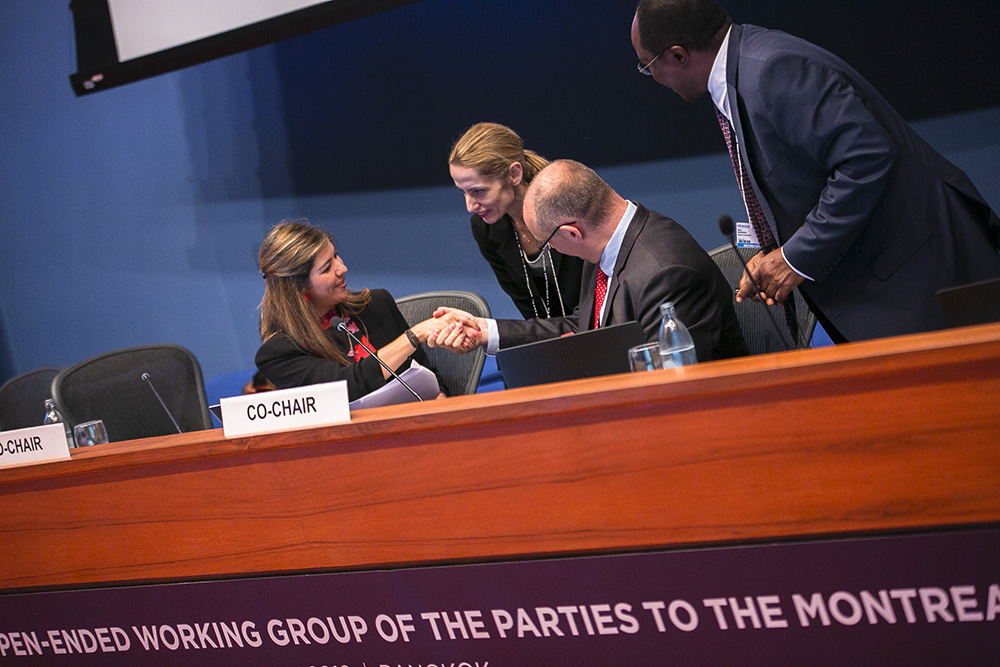
OEWG 41 convened for its final day on Friday, 5 July 2019, in Bangkok, Thailand.
Delegates met in the morning for contact and informal groups on the terms of reference (ToR) for Multilateral Fund (MLF) 2021-2023 Replenishment study; unexpected emissions of CFC-11; ongoing reported emissions of carbon tetrachloride (CTC); stocks of methyl bromide; and the ToR for the composition of the Technology and Economic Assessment Panel (TEAP).
All of the groups concluded their discussions, with deliberations set to resume at the 31st Meeting of the Parties (MOP 31) to be held in Rome, Italy in November 2019. Highlights of the contact and informal group discussions include:
- how to improve licensing systems to achieve compliance;
- reporting systems under the Vienna Convention and the Montreal Protocol not replacing national-level obligations;
- the need for the TEAP to take preparations for hydrofluorocarbon (HFC) phase-down plans into account as part of the MLF Replenishment Study ToR; and
- how to define stocks in response to a proposed draft decision inviting parties to submit information, voluntarily, on methyl bromide stocks.
Two side events were held: ‘Cooling without warming the planet: Opportunities to converge business and sustainability goals’ presented by the Council on Energy, Environment and Water (CEEW), and ‘A roadmap for sustainable cooling-what will it take?’ presented by the World Bank.
Closing plenary resumed in the late afternoon. The Co-Chairs thanked delegates for their participation during the OEWG, saying a better understanding had been reached on items that are crucial to the progress for the Protocol. The meeting closed at 5:54 pm.
As the meeting closed and delegates left the conference centre, there was a sense of completion and satisfaction as delegates had reached a point in deliberations where they felt comfortable forwarding issues to MOP 31. Saying goodbye, one delegate remarked that the big issues weren’t insurmountable at OEWG 41 as parties generally found a way forward, expressing hope that this would continue at MOP 31.
+ Visit the web coverage for Friday, 5 July 2019
IISD Reporting Services, through its Earth Negotiations Bulletin (ENB) meeting coverage, is providing daily web coverage from OEWG 41. In addition, IISD Reporting Services has published a summary and analysis from the meeting, which is available in HTML and PDF.
Photos by IISD/ENB | Sean Wu
For photo reprint permissions, please follow instructions at our Attribution Regulations for Meeting Photo Usage Page
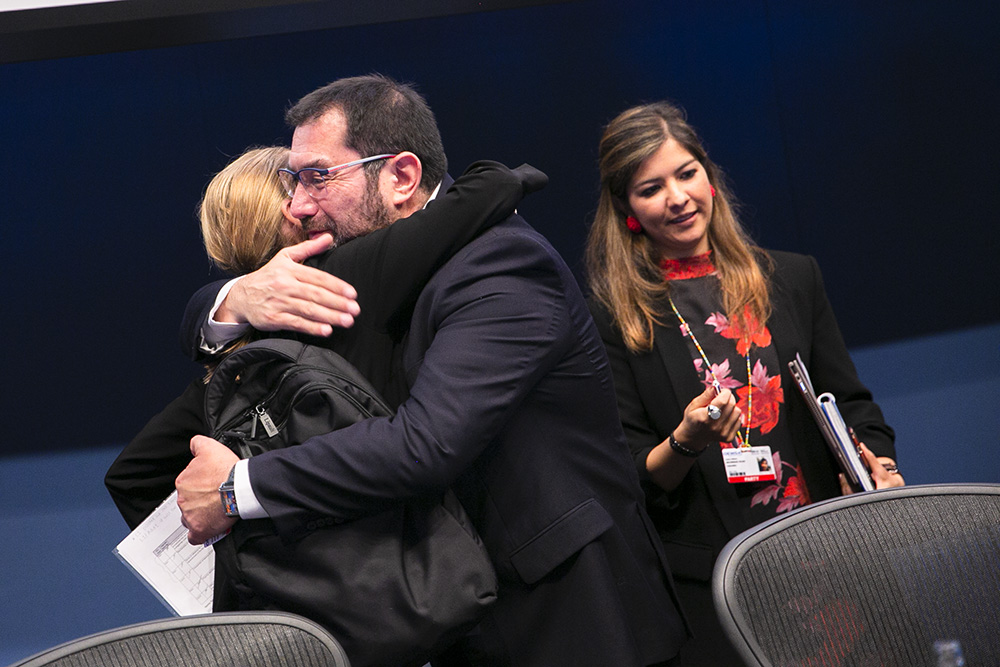
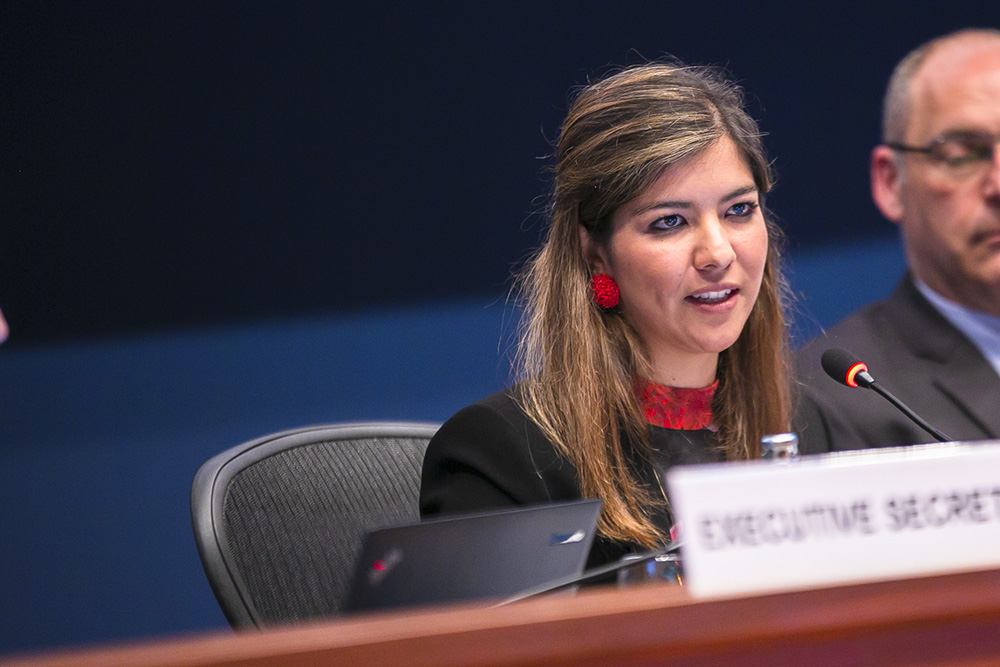
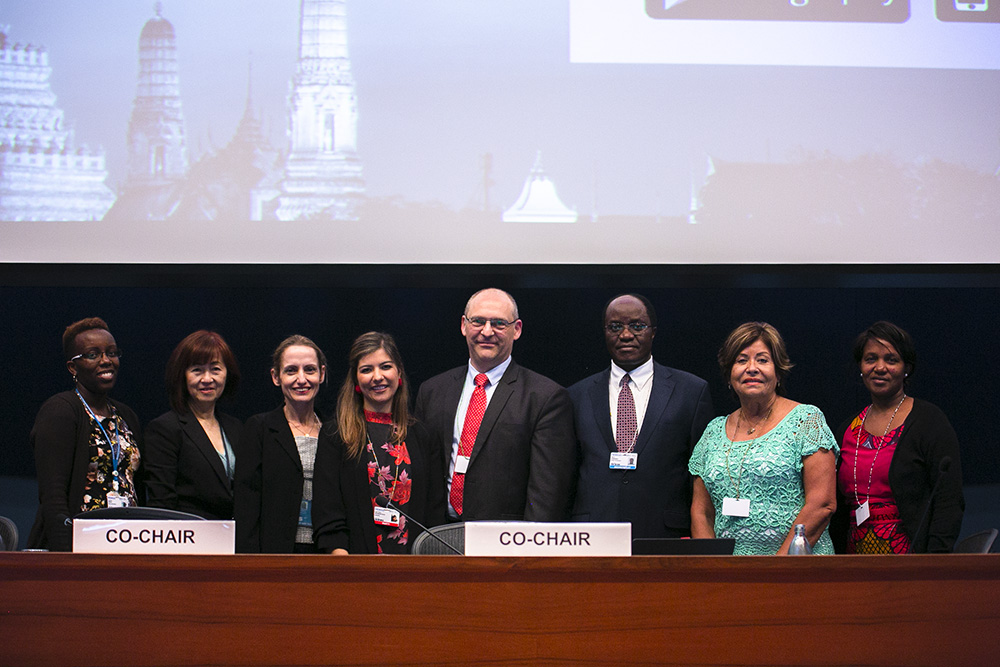
Highlights for Thursday, 4 July 2019
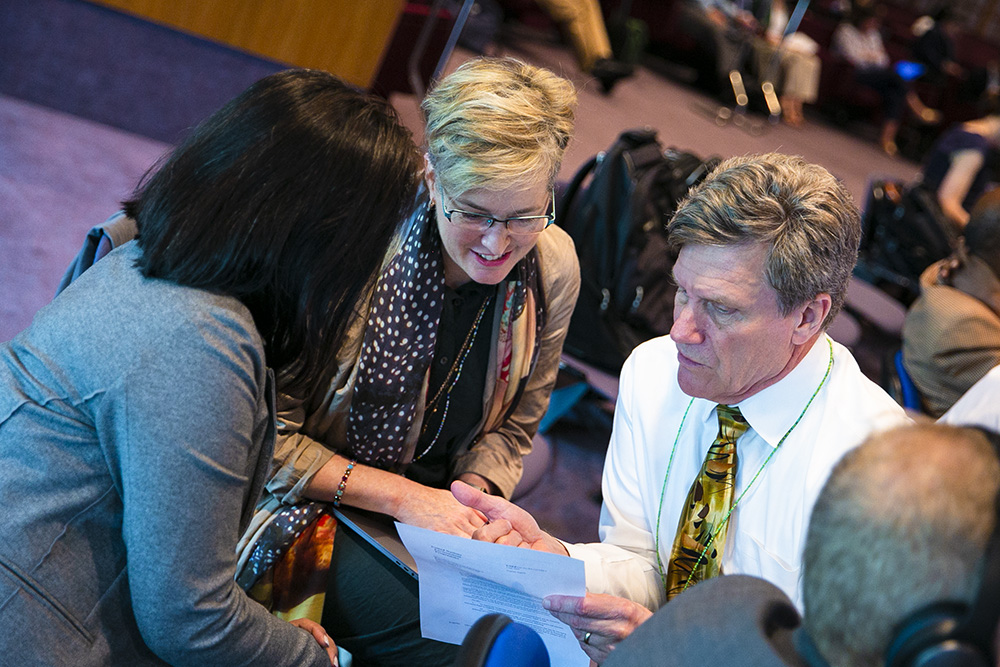
OEWG 41 convened for its penultimate day on Thursday, 4 July 2019, in Bangkok, Thailand.
Plenary addressed the remaining agenda items, as well as outstanding issues. The remaining agenda items deliberated include the Democratic People’s Republic of Korea (DPRK) at risk of non-compliance with the Montreal Protocol as a result of UN Security Council sanctions, and the role the Montreal Protocol can play in the sustainability of the cold chain with a view to reducing food losses.
Outstanding agenda items were discussed in contact groups and informal consultations before reporting to plenary. Highlights include:
- an informal group discussed the Government of Italy's proposal to have a roundtable during the High Level Segment of MOP 31 regarding the Protocol’s role in the sustainability of the cold chain;
- an informal group on the TEAP terms of reference (ToR) discussed current procedures for TEAP nominations and the matrix of expertise;
- the contact group on CFC-11 issues emphasized addressing institutional structure and Montreal Protocol requirements to more effectively monitor potential illegal trade of controlled substances such as CFC-11; and
- an informal group on the ToR for the 2022 Quadrennial Assessment, with discussion on assessing emissions trends, human health, and biodiversity and ecosystem health.
Three side events were held during day: ‘Energy efficiency in Servicing – past impacts of HPMP training and future potential’ organized by the German Agency for International Cooperation (GIZ), ‘Energy efficiency and refrigerant containment in supermarkets in Argentina’ organized by the UN Industrial Development Organization (UNIDO) and ‘Actions and Opportunities in Efficient Cooling’ organized by the Climate and Clean Air Coalition (CCAC) and its partners.
As the rains came down in Bangkok, delegates toiled hard. All the agenda items for discussions had been introduced, so it remained for delegates to reach consensus on issues for consideration at the upcoming MOP. Many were concerned that despite the heavy schedule, not enough progress is being made to pave the way for a smooth MOP; others, however, seemed nonplussed, saying that at the end of the day, the crucial discussions are always deferred to the MOP.
+ Visit the web coverage for Thursday, 4 July 2019
Photos by IISD/ENB | Sean Wu
For photo reprint permissions, please follow instructions at our Attribution Regulations for Meeting Photo Usage Page
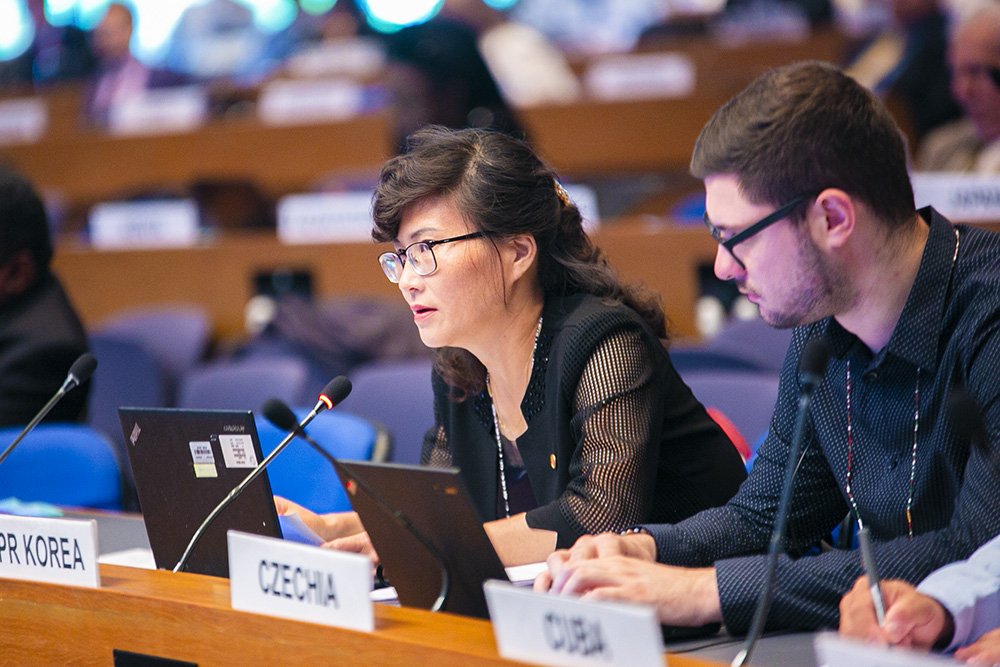
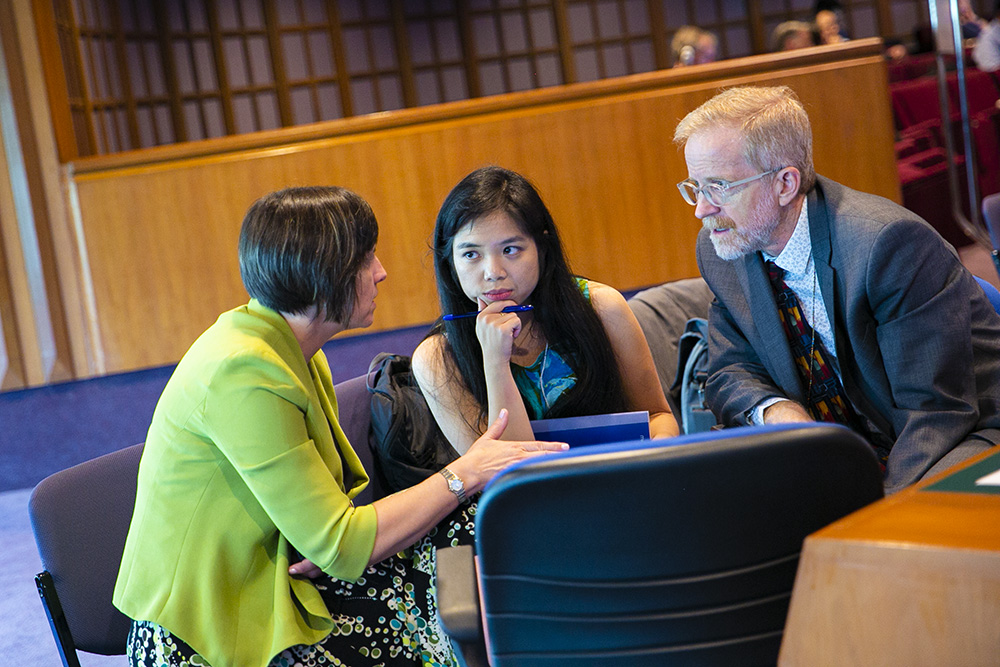
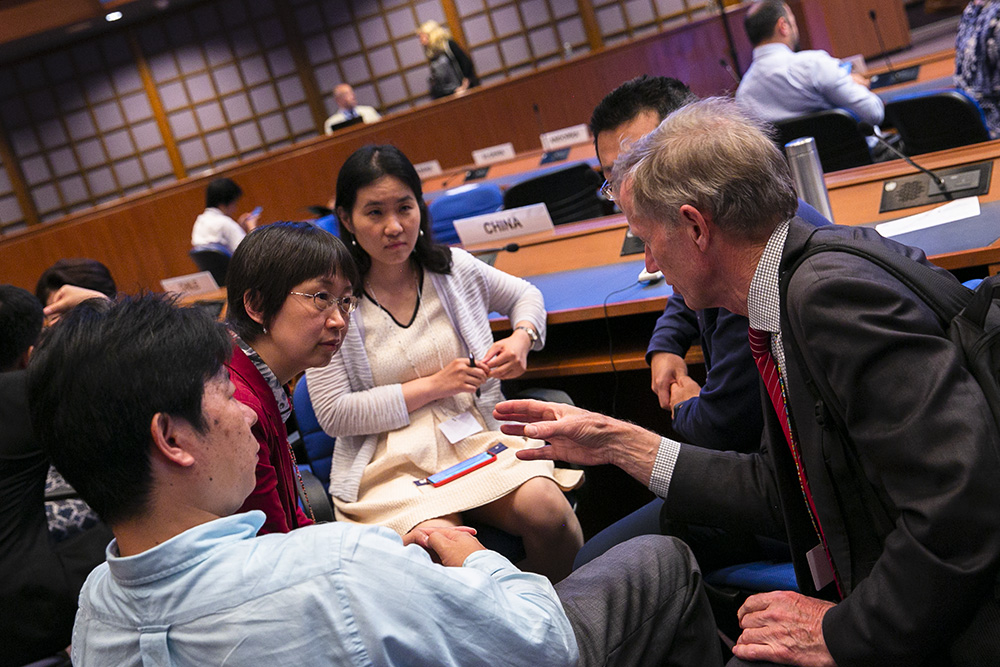
Highlights for Wednesday, 3 July 2019
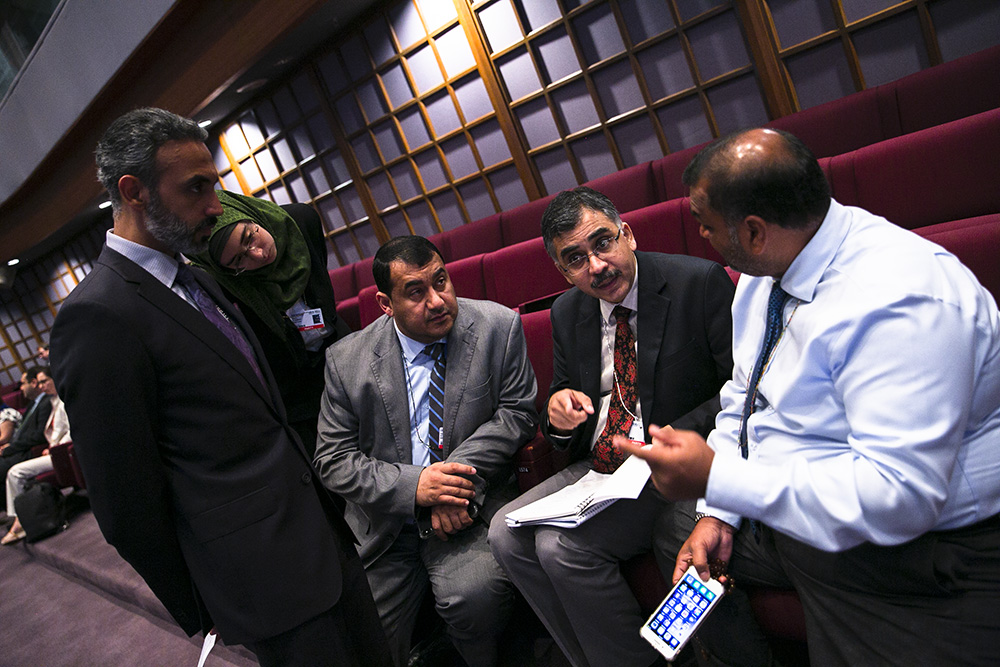
OEWG 41 convened for its third day on Wednesday, 3 July 2019, in Bangkok, Thailand.
Delegates met throughout the day in plenary addressing:
- Article 5 parties’ access to energy efficient technology;
- linkages between HCFCs and HFCs in transitioning to low-GWP alternatives;
- safety standards;
- review of the terms of reference (ToR), composition, balance, fields of expertise and workload of the Technology and Economic Assessment Panel (TEAP);
- membership of the Multilateral Fund (MLF) Executive Committee (ExCom); and
- the request by Azerbaijan to be included among the parties to which the phase-down schedule for HFCs, as set out in paragraphs 2 and 4 of Article 2J of the Montreal Protocol, applies.
Contact groups on ToR for the study on the MLF replenishment 2021-2023, unexpected emissions of CFC-11 and an informal consultation on lab and analytical uses met during the course of the day.
Highlights of the discussions include:
- adopting common standards between similar markets would enable manufacturers to capitalize on scale and accelerate technology readiness;
- how countries are setting and enforcing minimum energy performance standards;
- the suggestion of a review mechanism on the composition of the TEAP; and
- presentation of the development of an online tool for safety standards.
Three side events were held during day: ‘Green Cooling in South-East Asia - selected case studies from Indonesia and Thailand’ organized by the German Agency for International Cooperation (GIZ), ‘Enforcement of HCFC Licensing Systems’ organized by OzonAction, and ‘Japan’s F-gas policy and current status of measures to curb greenhouse gas emissions and to enhance energy efficiency products in RACHP sector’ organized by The Japan Refrigeration and Air Conditioning Industry Association.
At the end of the day’s deliberations, some delegates were heard commenting that parts of the afternoon’s debate felt a bit like “going down memory lane.” Recalling the heated debates leading up to the Kigali Amendment’s adoption, she remarked that the eristic discussions triggered by the review of the TEAP’s ToR, composition, balance, fields of expertise and workload, the MLF ExCom membership were somewhat unexpected.
+ Visit the web coverage for Wednesday, 3 July 2019
Photos by IISD/ENB | Sean Wu
For photo reprint permissions, please follow instructions at our Attribution Regulations for Meeting Photo Usage Page
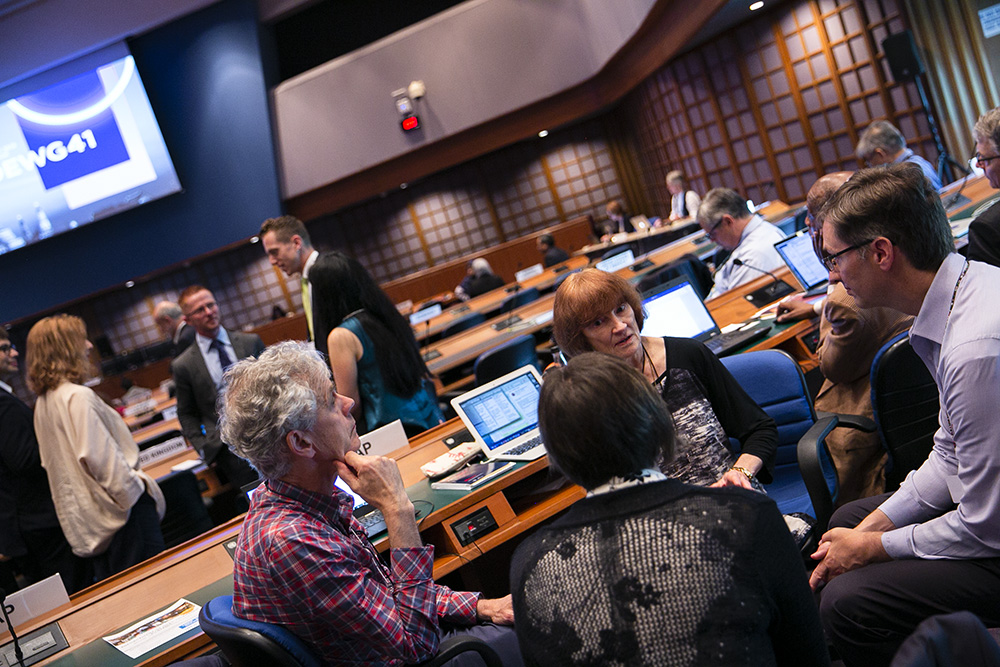
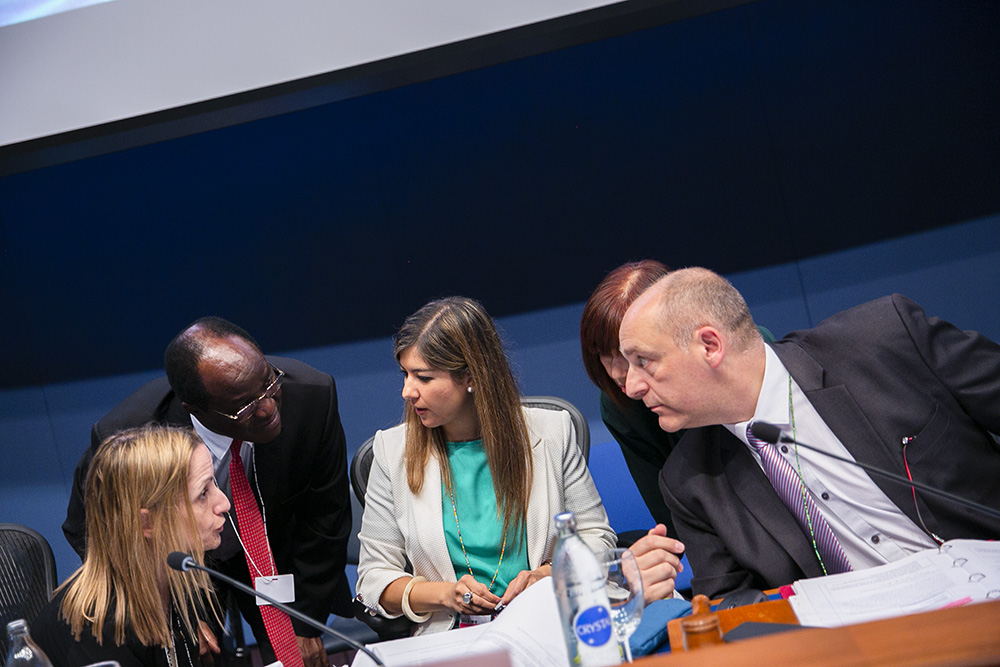
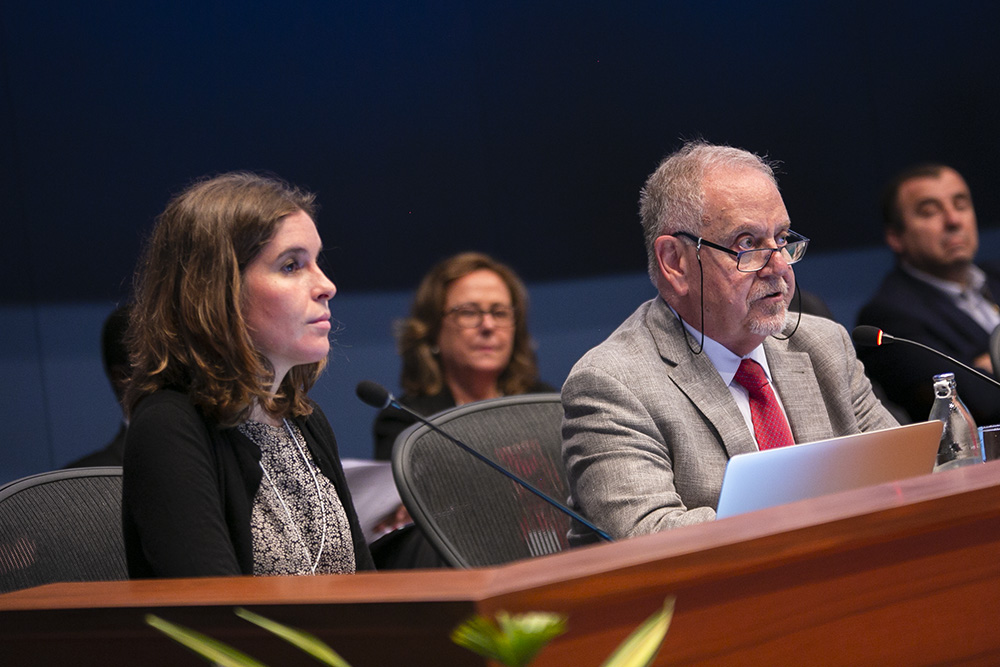
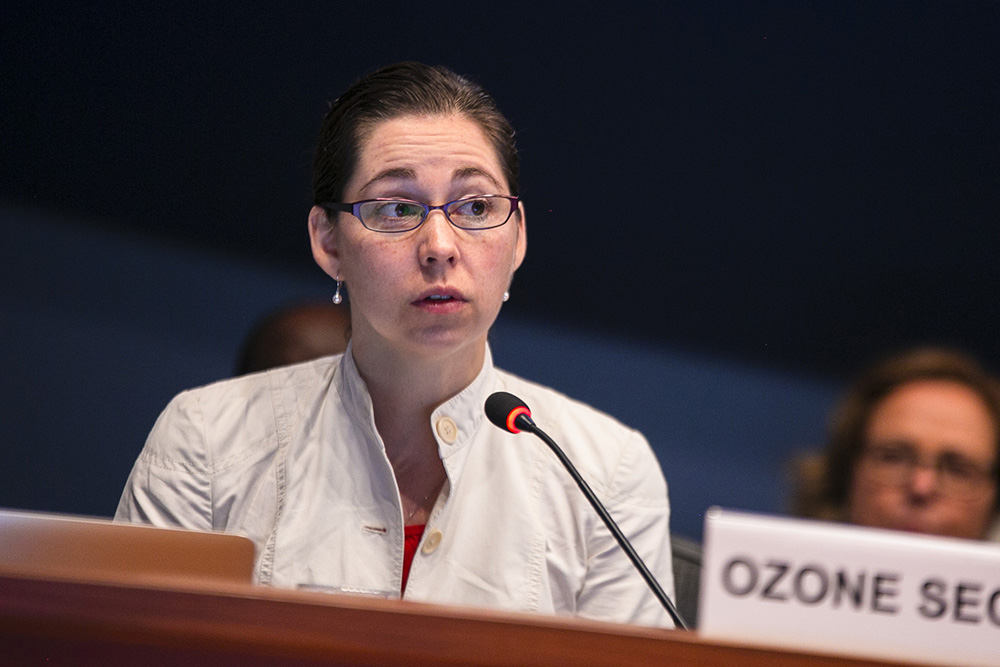
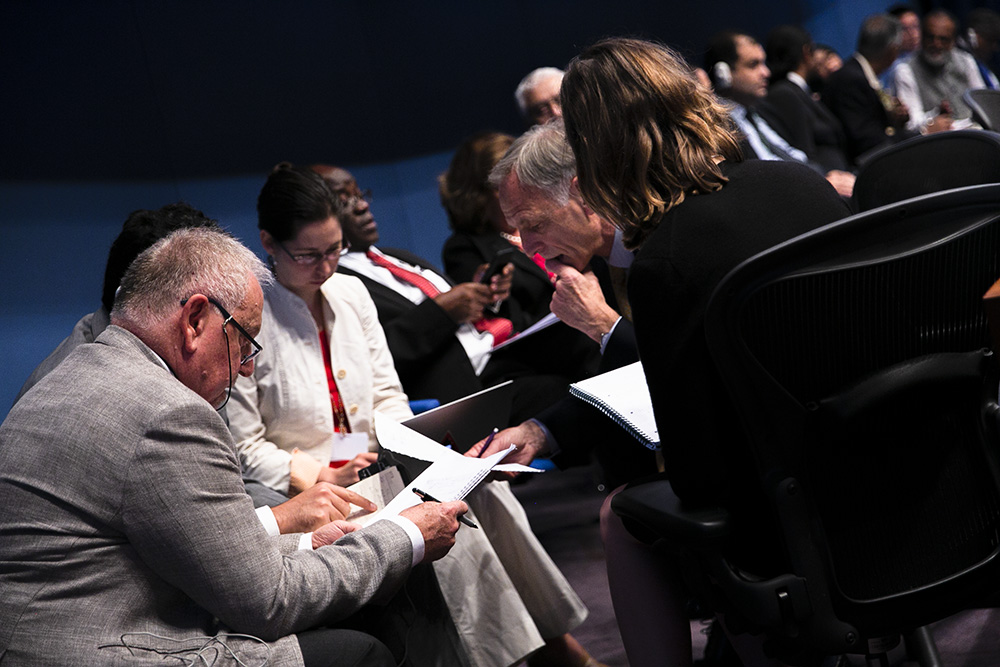
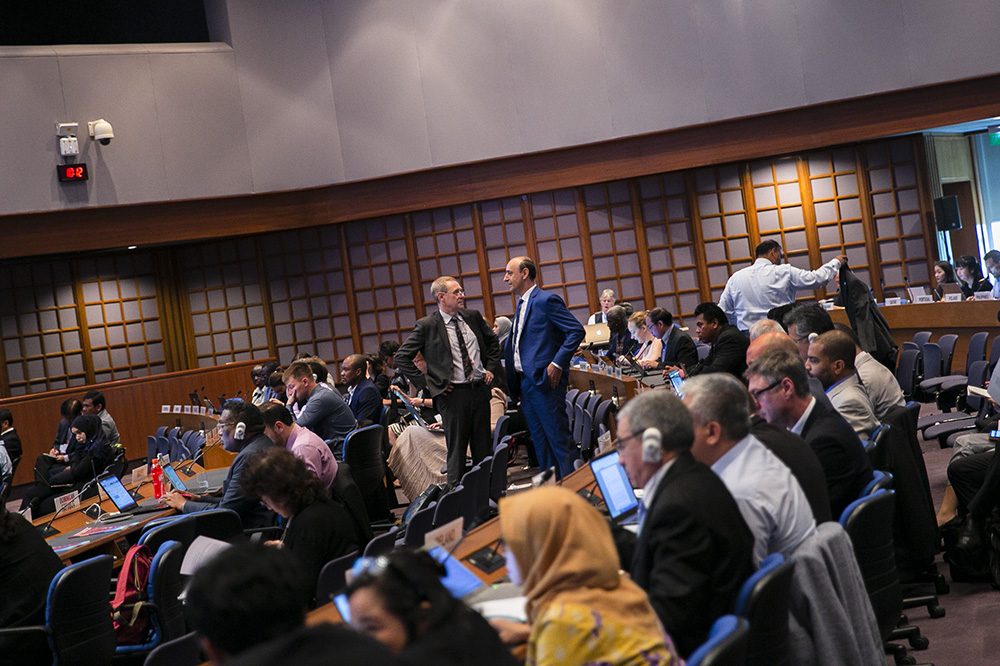
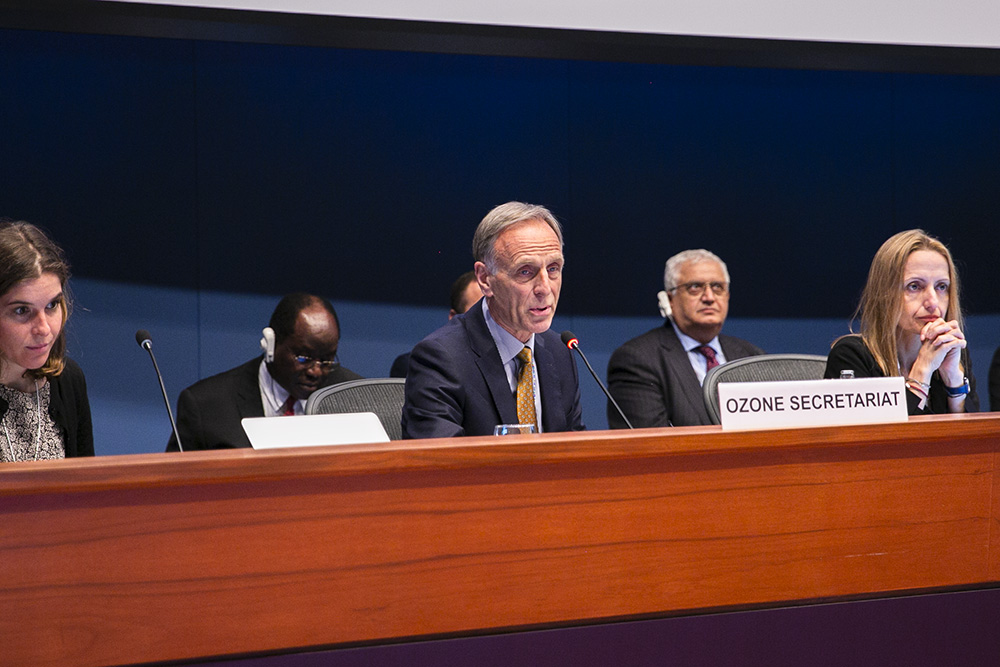
Highlights for Tuesday, 2 July 2019
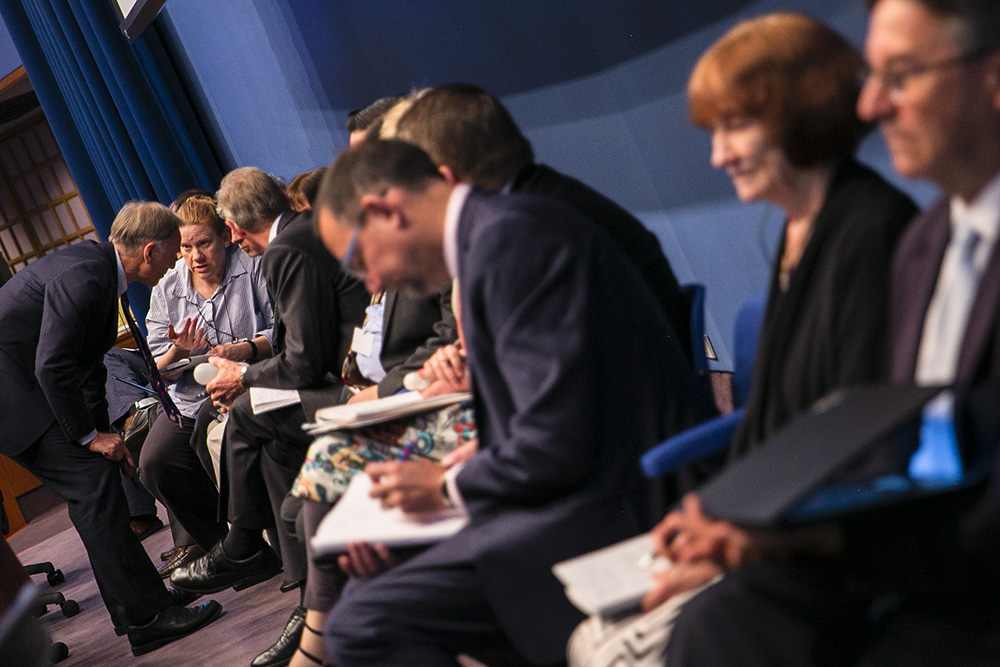
Delegates convened for the second day of the forty-first meeting of the Open-Ended Working Group of the Parties to the Montreal Protocol on Substances that Deplete the Ozone Layer (OEWG 41) on Tuesday, 2 July 2019, in Bangkok, Thailand.
Plenary discussions addressed the Quadrennial Assessment of the Montreal Protocol for 2018, and potential areas of focus for the 2022 Assessment; as well as the Technical and Economic Assessment Panel (TEAP) 2019 report.
Highlights of the discussions include:
- the TEAP and its associated Technical Options Committees (TOCs), presenting its Quadrennial Assessment, stating that the Protocol’s sustained success hinges on parties’ continued vigilance to fulfil their commitments and prevent any future actions...nullifying the ozone and climate benefits achieved thus far;
- relationship between stratospheric ozone and proposed solar radiation management strategies;
- on-going reported emissions of carbon tetrachloride (CTC);
- submission of four nominations for critical-use exemptions for methyl bromide;
- nine specific lab and analytical procedures being recommended for removal from those uses included in the global essential-use exemption; and
- possible revisions needed in the list of ozone depleting substances used as process agents.
Two side events were held during the lunch break: The Online Reporting Tool presented by the Ozone Secretariat, and ‘Opportunities to Finance Energy Efficiency alongside the HFC Phasedown – Organizer’ presented by the Natural Resources Defense Council (NRDC).
Following the meetings of the contact groups on CFC-11 issues, and the Multilateral Fund Replenishment Study Terms of Reference, delegates noted that even by the end of day two “we have only started to scrape the surface of the work that needs to be done.” Many said that while the deliberations have largely been rote, and requests for more time predictable, “the more we can do now, means a smoother Meeting of the Parties in November.”
+ Visit the web coverage for Tuesday, 2 July 2019
Photos by IISD/ENB | Sean Wu
For photo reprint permissions, please follow instructions at our Attribution Regulations for Meeting Photo Usage Page
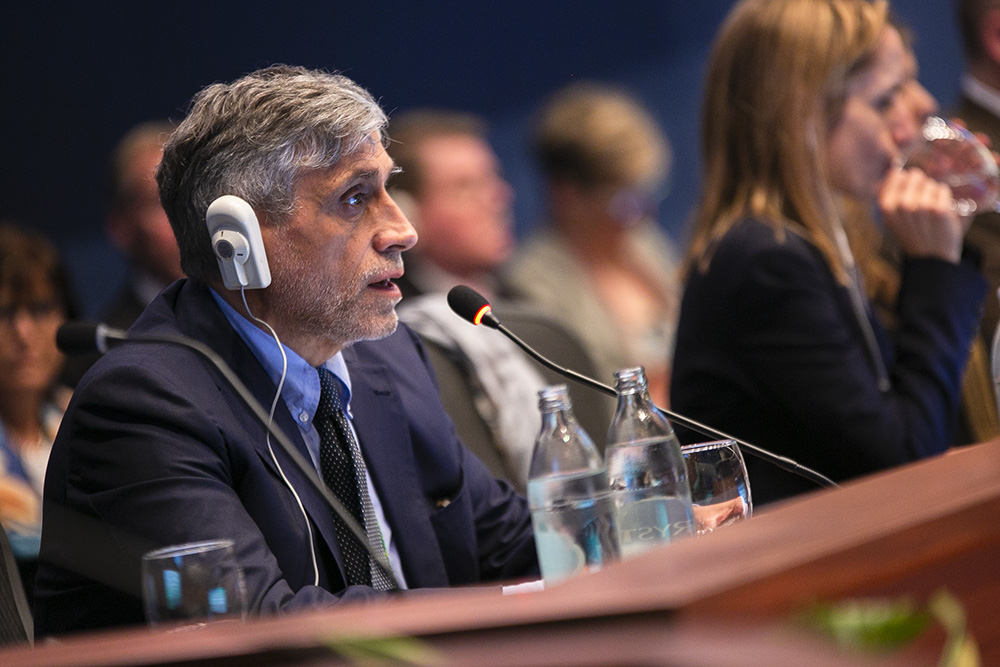

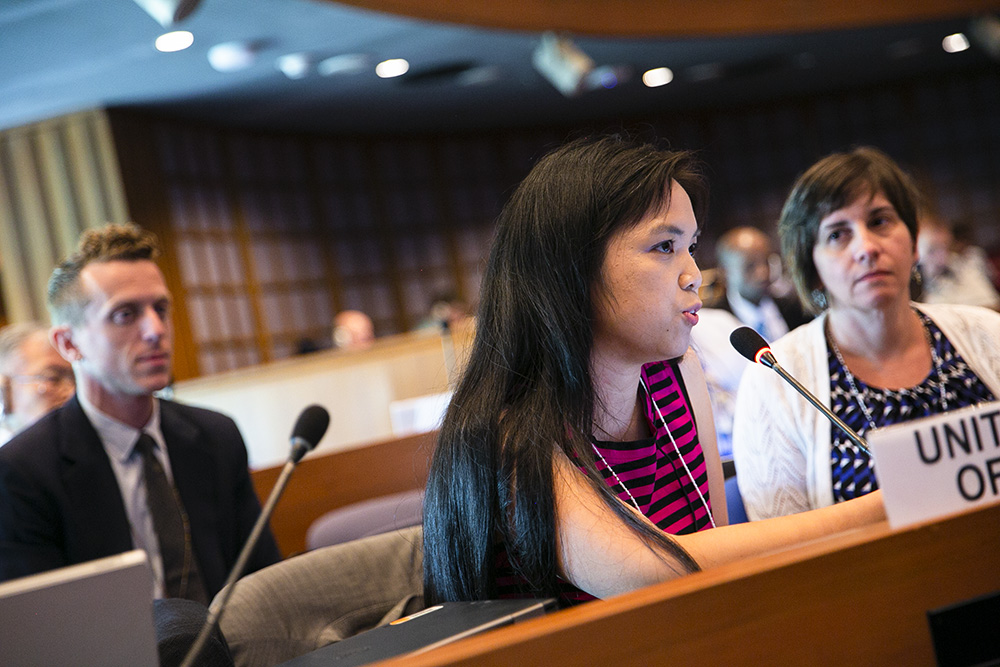
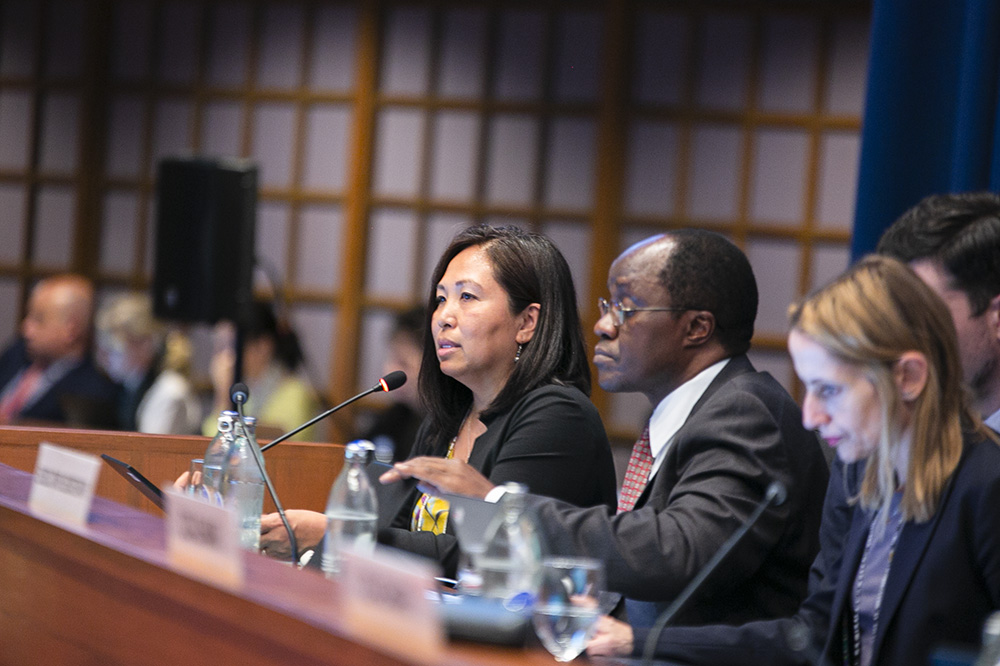
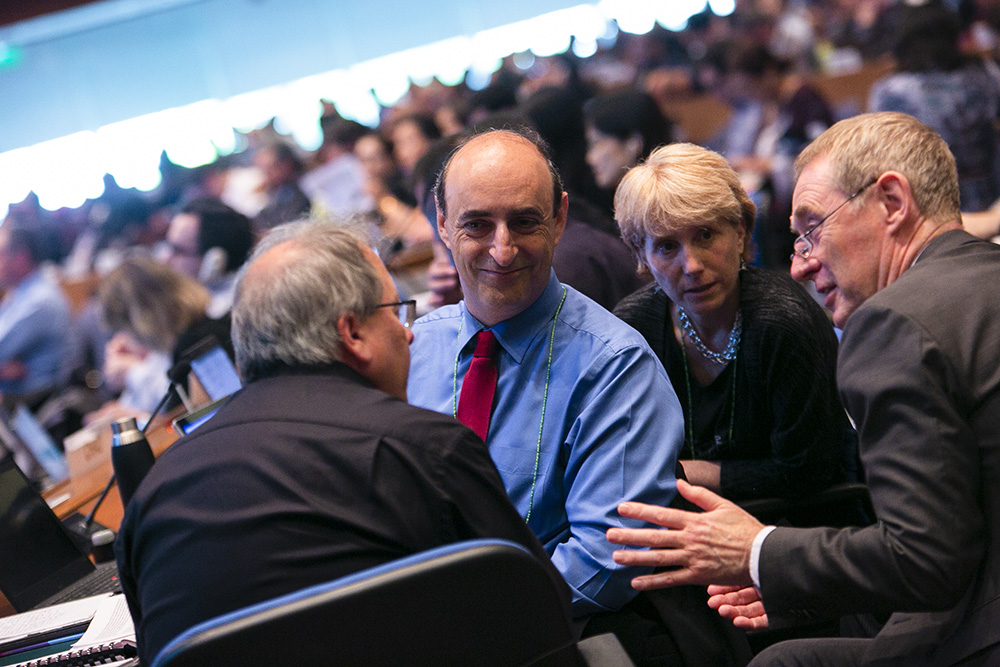
Highlights for Monday, 1 July 2019

The forty-first meeting of the Open-Ended Working Group of the Parties to the Montreal Protocol on Substances that Deplete the Ozone Layer (OEWG 41) opened on Monday, 1 July 2019, in Bangkok, Thailand.
In their opening addresses, Apichin Jotikasthira, Deputy Permanent Secretary, Ministry of Industry, Thailand, urged all parties to ratify the Kigali Amendment as soon as possible. Dechen Tsering, Director, UNEP Regional Office for Asia and the Pacific, called for ensuring energy efficiency improvements in the refrigeration and air conditioning (RAC) sector are included in the Amendment’s implementation. Tina Birmpili, Executive Secretary, Ozone Secretariat, said the CFC-11 case demonstrates the need for continued national vigilance and enforcement and for improving global monitoring.
Following organizational matters, delegates addressed the issue of unexpected emissions of CFC-11 (Decision XXX/3). Key highlights include:
- presentations by the Scientific Assessment Panel (SAP) and the Technical and Economic Assessment Panel (TEAP) Task Force on CFC-11 of their preliminary reports on the issue;
- parties' discussion on the presentations and a general debate; and
- establishing a contact group to address two areas, namely technical and scientific issues, including information needs, as well as institutional matters under the Vienna Convention and the Montreal Protocol.
Parties also discussed the Terms of References (ToR) for the 2021–2023 Multilateral Fund (MLF) replenishment study, and the Quadrennial Assessment of the Montreal Protocol for 2018 and potential areas of focus for the 2022 Assessment. A contact group was established to discuss the replenishment study ToR.
Side events on the India Cooling Action Plan, new insights into the source of increased CFC-11 emissions, and ‘National Cooling Plans: Linking cooling to energy efficiency interventions’ also took place.
Delegates arrived at OEWG 41 ready to tackle a heavy agenda with many acknowledging that CFC-11 issues will likely dominate discussions. Some lauded the depth of discussion that had taken place but cautioned that “serious thought” needs to be given on how to improve monitoring, reporting, and verification, and tighten compliance.
+ Visit the web coverage for Monday, 1 July 2019
Photos by IISD/ENB | Sean Wu
For photo reprint permissions, please follow instructions at our Attribution Regulations for Meeting Photo Usage Page
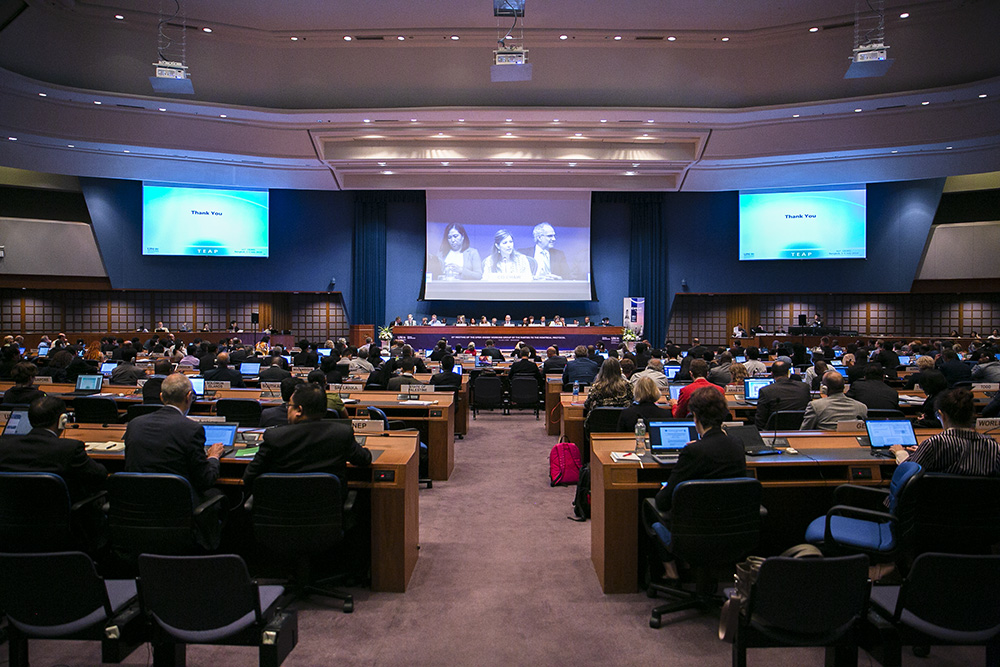
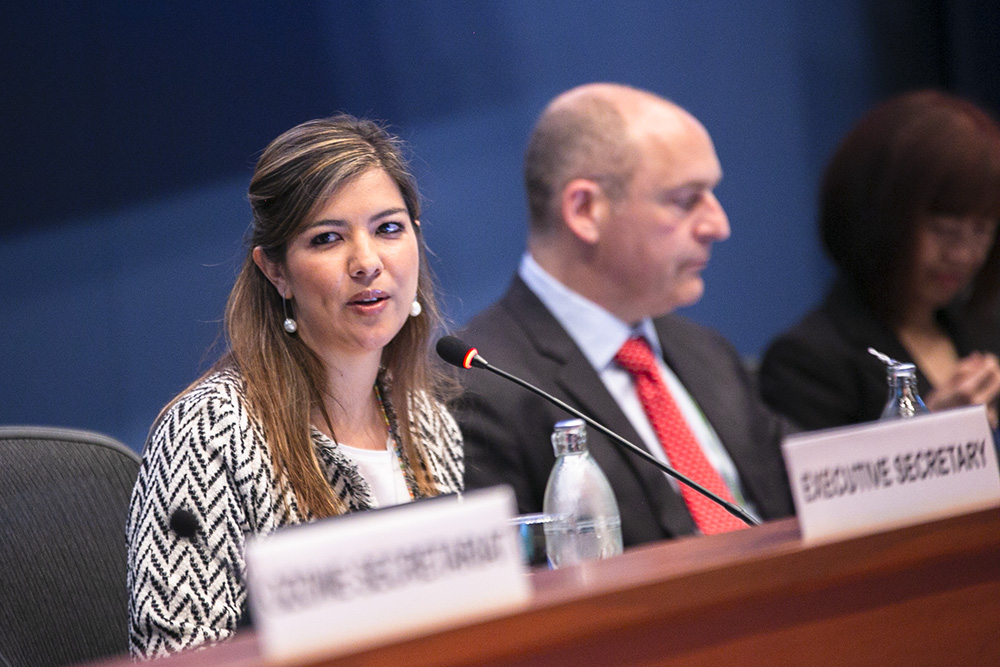
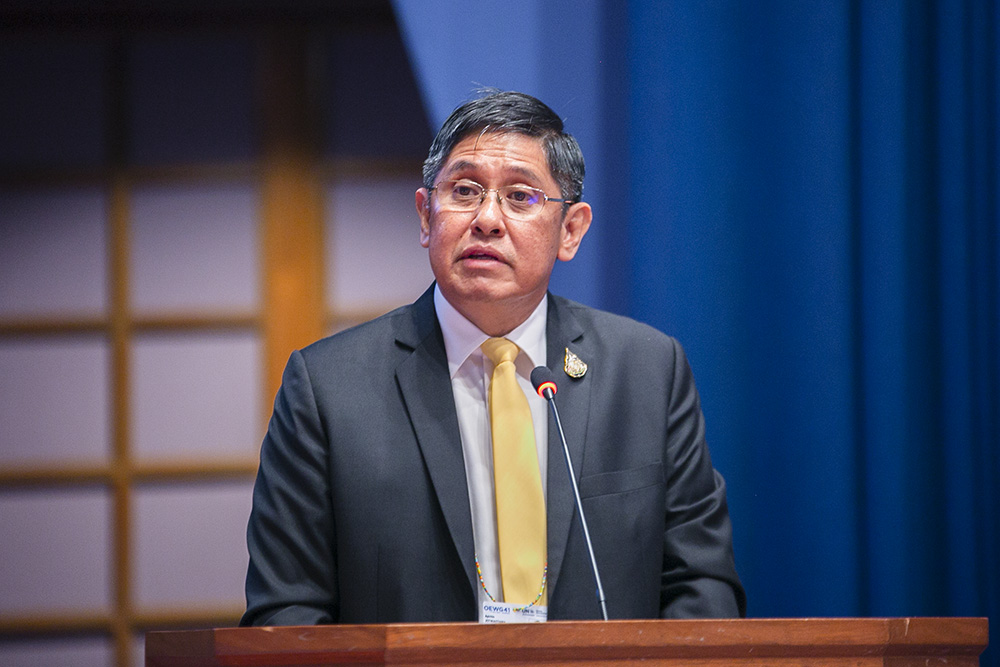
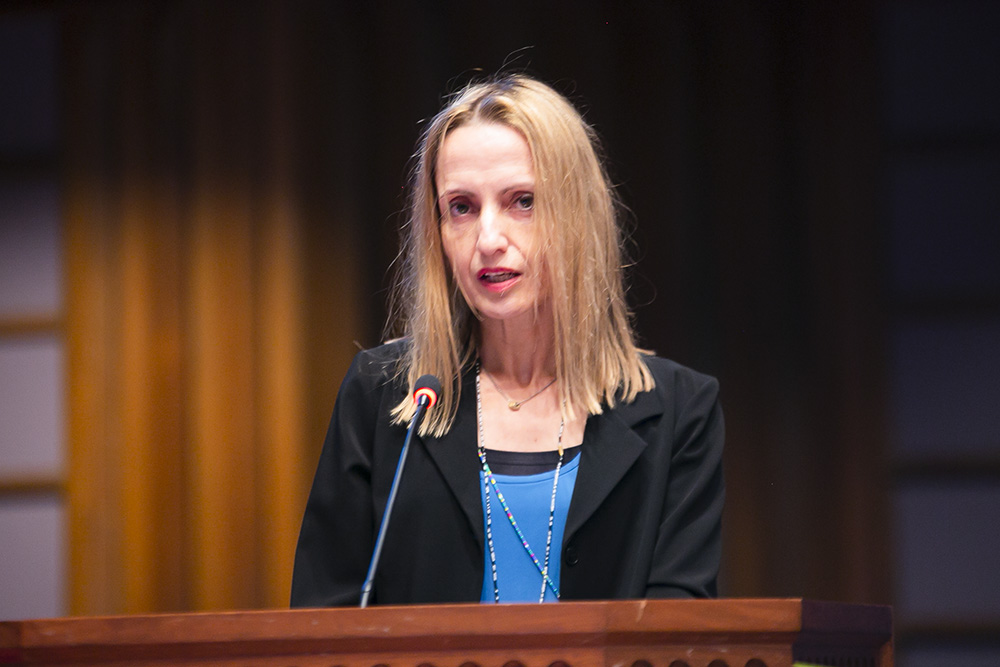
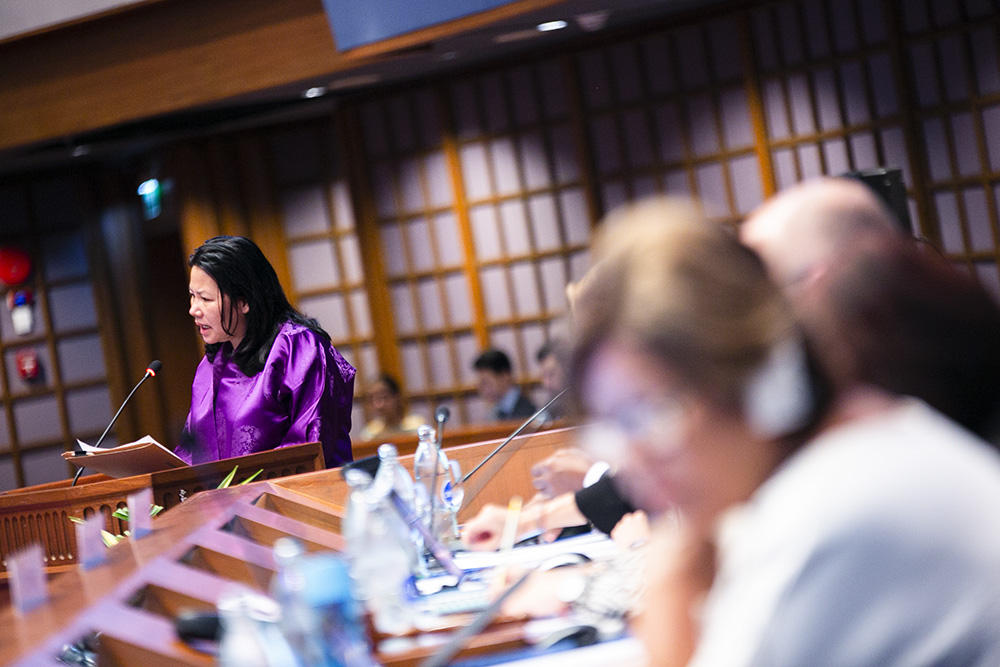
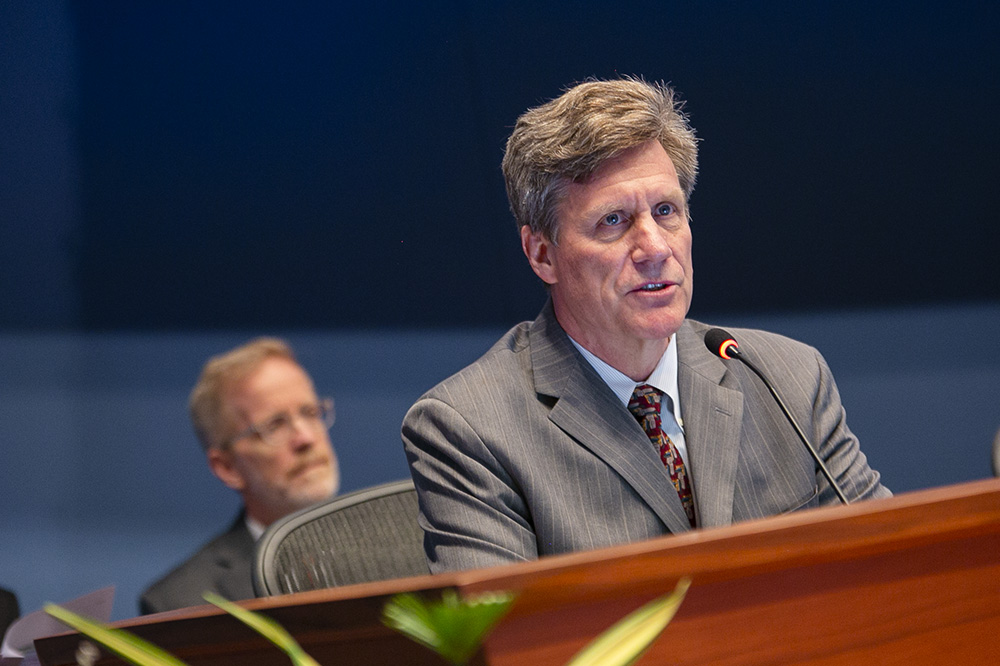
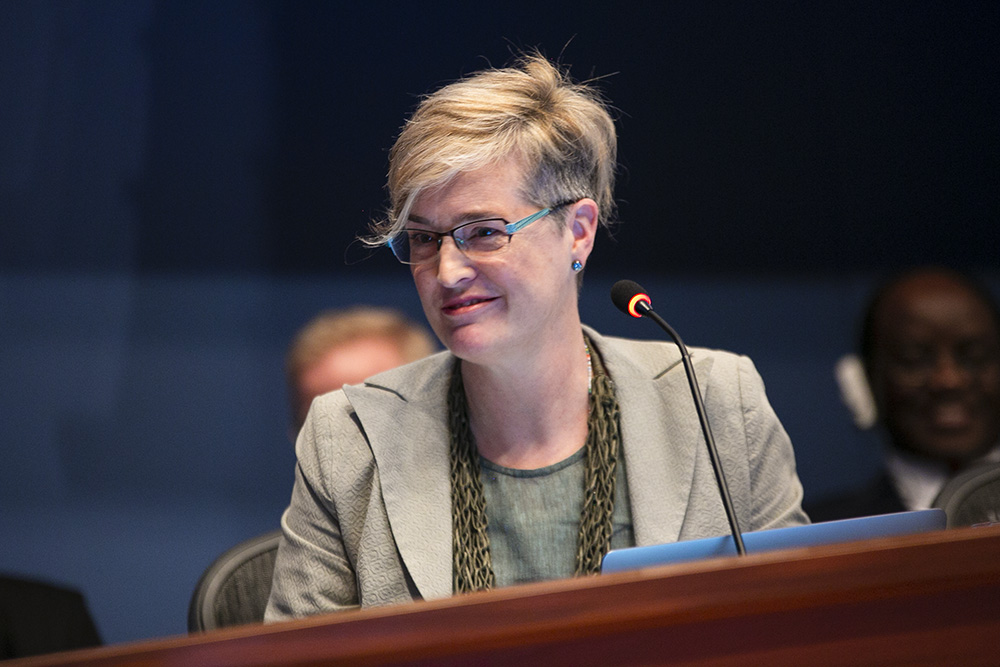
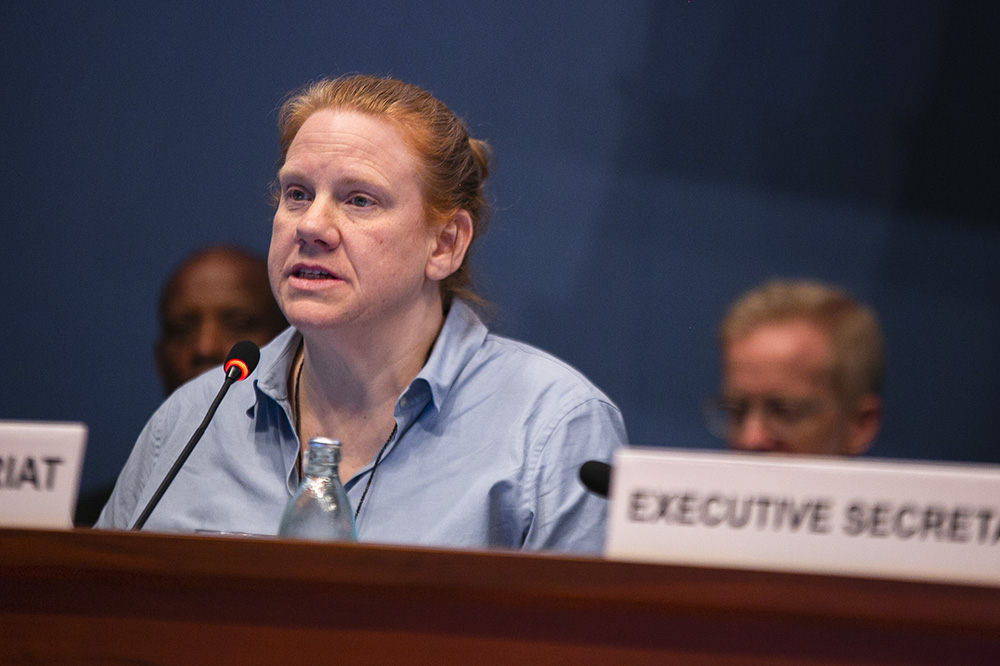
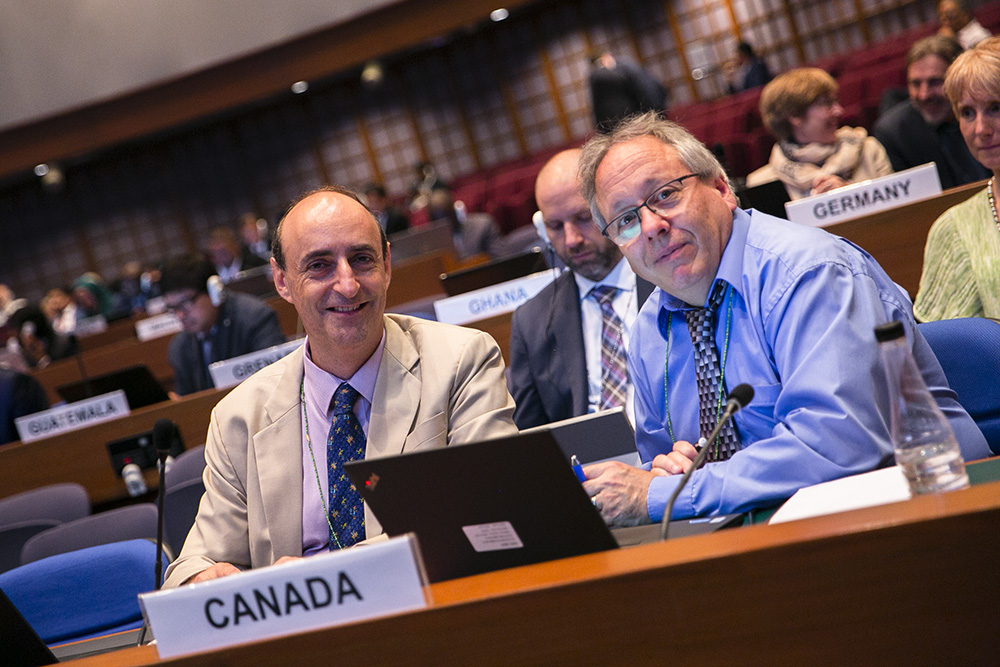
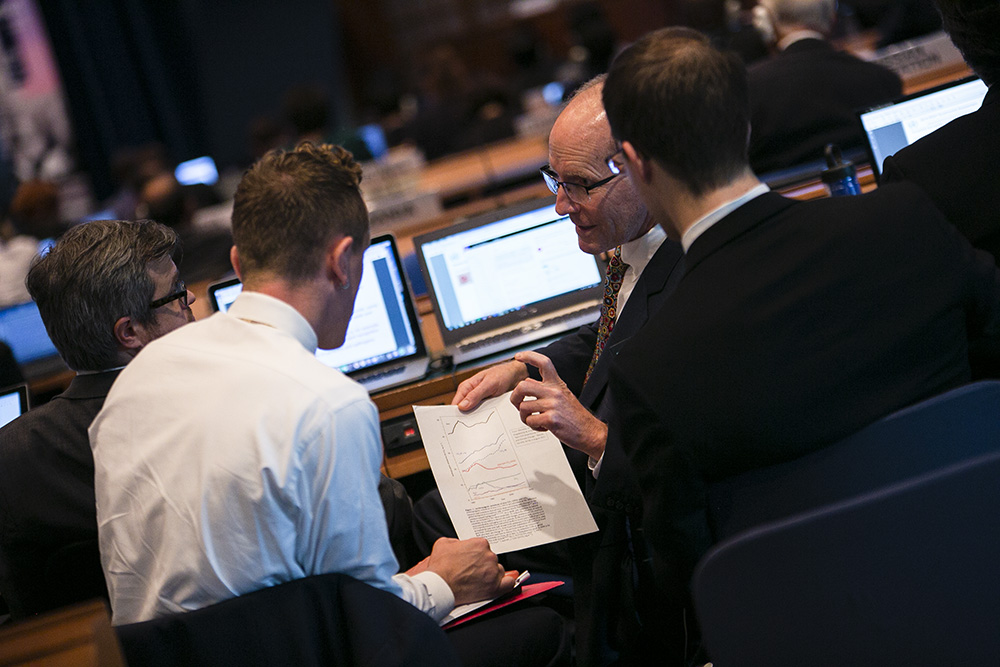
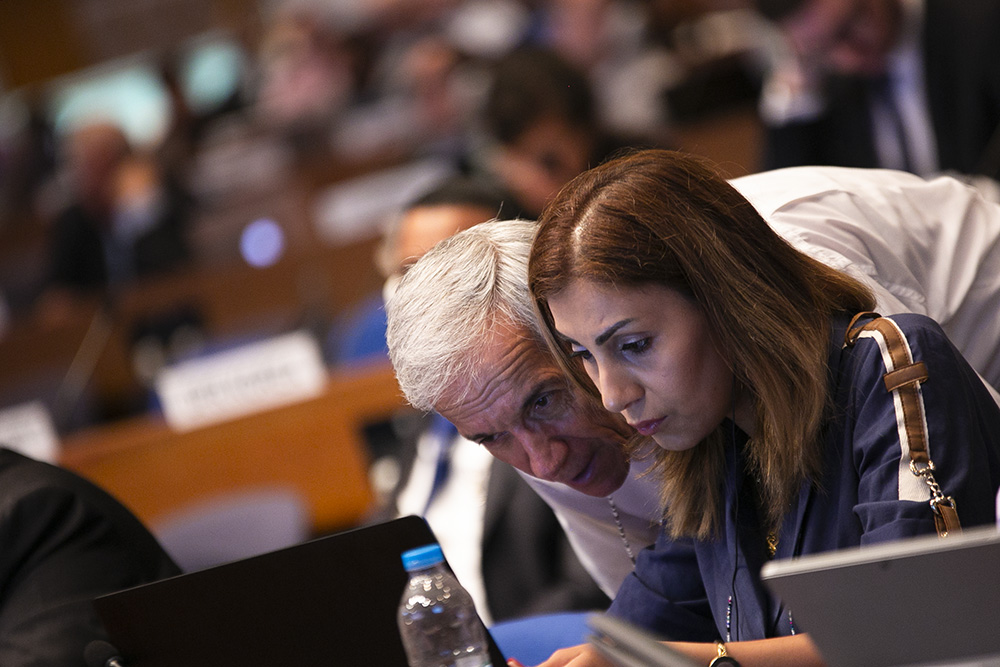
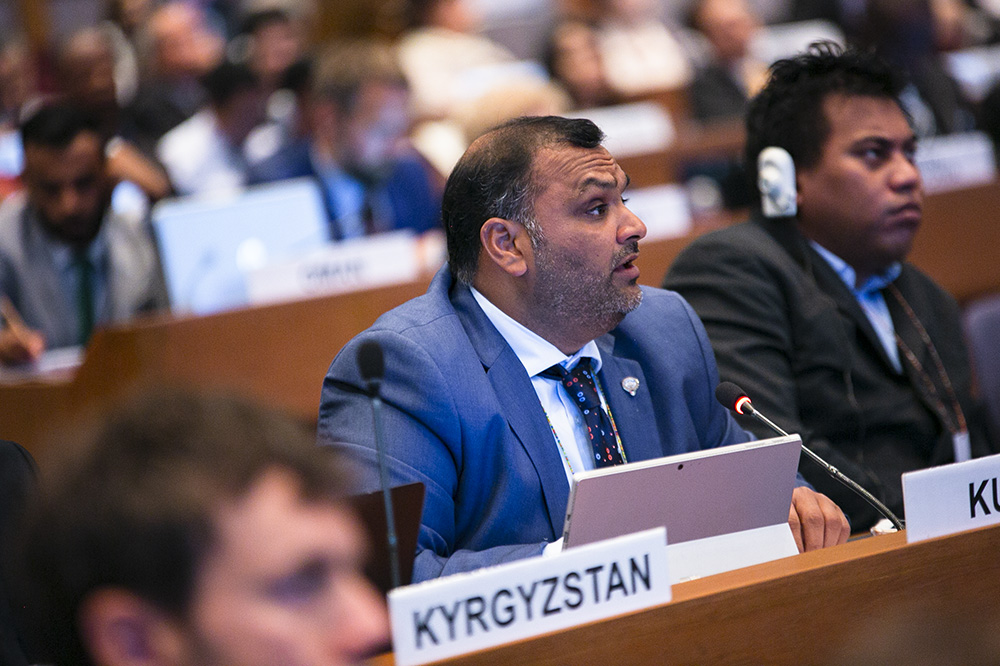
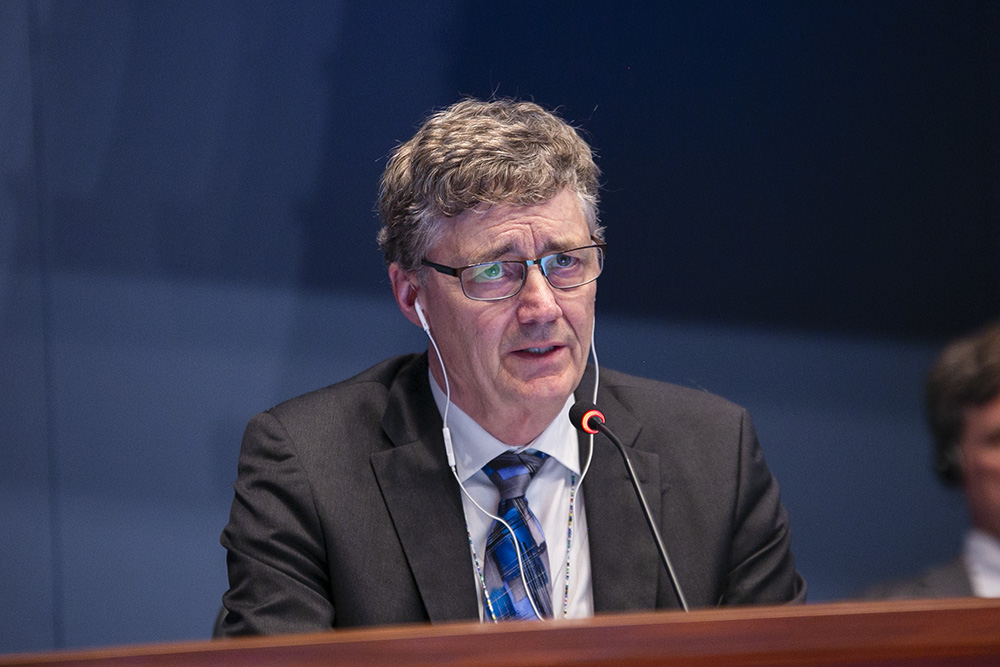
DOWNLOAD ENB REPORT
OEWG 41 Resources
IISD ENB/ENB+ Meeting Coverage
- MOP 30, 5-9 November 2018, Quito, Ecuador
- OEWG 40, 11-14 July 2018, Vienna, Austria
- 11th Meeting of the Conference of the Parties to the Vienna Convention for the Protection of the Ozone Layer (COP 11) and MOP 29, 20-24 November 2017, Headquarters of the International Civil Aviation Organization (ICAO), Montreal, Canada
- Workshop on Safety Standards Relevant to the Safe Use of Low Global Warming Potential (GWP) Alternatives to Hydrofluorocarbons (HFCs) and OEWG 39, 10-14 July 2017, UNCC, Bangkok, Thailand
- Resumed OEWG 38 and MOP 28, 8 and 10-14 October 2016, Kigali, Rwanda
- Resumed OEWG 37, OEWG 38 and 3rd Extraordinary Meeting of the Parties to the Montreal Protocol (ExMOP 3), 15-16 July, 18-21 July and 22-23 July 2016, Vienna, Austria
- OEWG 37, 4-8 April 2016, Geneva, Switzerland
- Resumed OEWG 36 and MOP 27, 29-30 October and 1-5 November 2015, Dubai, United Arab Emirates
IISD Resources
- Subscription Page for IISD Reporting Services Peer-to-Peer Mailing Lists (including OCEANS-L, SDG, CLIMATE-L, BIODIVERSITY-L, and Regional Updates)
- SDG - A Mailing List for News on Sustainable Development Policy
- SDG Update Newsletter - A compilation of news, commentary and upcoming events published on the SDG Knowledge Hub
- SDG Knowledge Hub - An Online Resource Center for News and Commentary Regarding the Implementation of the United Nations’ 2030 Agenda for Sustainable Development, including all 17 Sustainable Development Goals (SDGs)
- Linkages Update - International Environment and Sustainable Development News
 Specific funding for IISD Reporting Services coverage of OEWG 41 has been provided by the Ozone Secretariat
Specific funding for IISD Reporting Services coverage of OEWG 41 has been provided by the Ozone Secretariat